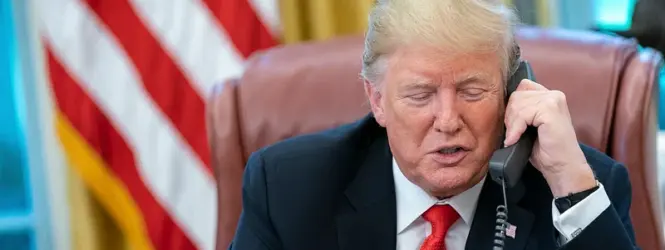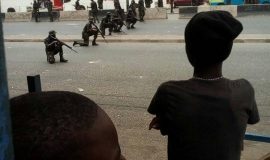Freedom
Trump’s Fiery Warning on Nigeria: Defending Persecuted Christians or Dangerous Escalation?
In a move that has sent shockwaves through international diplomacy, U.S. President Donald J. Trump has issued a blistering ultimatum to Nigeria, threatening military intervention unless the West African nation curbs what he describes as an “existential threat” to its Christian population. The statement, delivered via a series of explosive social media posts over the weekend, marks a dramatic escalation in Trump’s foreign policy rhetoric—one that blends his signature bravado with deep-rooted concerns over global religious persecution. But as the dust settles, questions abound: Is this a bold stand for human rights, a calculated political play, or a recipe for unintended chaos? Let’s unpack the full story, from the origins of the crisis to its far-reaching implications.
The Spark: Trump’s Initial Declaration
It all began on Friday, October 31, when Trump took to Truth Social to announce that Nigeria would be added to the U.S. Department of State’s list of “Countries of Particular Concern” (CPC)—a designation reserved for nations deemed to engage in or tolerate severe violations of religious freedom. In stark terms, Trump wrote: “Christianity is facing an existential threat in Nigeria. Thousands of Christians are being killed. Radical Islamists are responsible for this mass slaughter.” He framed the decision as a moral imperative, echoing longstanding grievances from evangelical leaders and conservative lawmakers who have long accused the Nigerian government of turning a blind eye to anti-Christian violence.
This wasn’t mere hyperbole for Trump. The CPC label, first applied to Nigeria in 2020 under his own administration (and later lifted in 2023 amid diplomatic thawing), carries real weight. It can trigger sanctions, aid restrictions, and international scrutiny. Trump’s post went viral, amassing millions of views and shares within hours, with supporters hailing it as proof of his unwavering commitment to “protecting our cherished Christians around the world.”
The Escalation: Guns, Terrorists, and a “Department of War”
By Saturday, the rhetoric had ratcheted up to DEFCON 1. In a follow-up post that read like a page from a Tom Clancy novel, Trump warned: “If the Nigerian Government continues to allow the killing of Christians, the U.S.A. will immediately stop all aid and assistance to Nigeria, and may very well go into that now disgraced country, ‘guns-a-blazing,’ to completely wipe out the Islamic Terrorists who are committing these horrible atrocities.” He didn’t stop there, instructing the Pentagon—rebranded by his administration as the “Department of War”—to “prepare for possible action.” “If we attack, it will be fast, vicious, and sweet, just like the terrorist thugs attack our CHERISHED Christians! WARNING: THE NIGERIAN GOVERNMENT BETTER MOVE FAST!”
Defense Secretary Pete Hegseth, a Trump loyalist and Fox News alum, amplified the threat on X (formerly Twitter), replying: “Yes sir. The Department of War is preparing for action. Either the Nigerian Government protects Christians, or we will kill the Islamic Terrorists who are committing these horrible atrocities.”The imagery was vivid and visceral: American forces storming into Africa’s most populous nation, not with surgical strikes, but “guns-a-blazing” against an enemy Trump painted as existential.
On Sunday, aboard Air Force One, Trump doubled down when pressed by reporters. “They’re killing record numbers of Christians in Nigeria. They’re killing the Christians and killing them in very large numbers. We’re not going to allow that to happen,” he said, leaving open the possibility of troop deployments or airstrikes. It was classic Trump: unfiltered, unapologetic, and unafraid to wield the full might of U.S. power as a cudgel.
The Crisis in Nigeria: Fact vs. Fiction
To understand the stakes, we must zoom out to Nigeria’s harrowing reality. Home to over 220 million people—roughly split between a Muslim-majority north and a Christian-majority south—the country has been a tinderbox for decades. Groups like Boko Haram and its splinter, the Islamic State West Africa Province (ISWAP), have waged a brutal insurgency since 2009, killing tens of thousands and displacing millions. These extremists target “infidels” indiscriminately, but Christians in the Middle Belt region—farmers caught in clashes over land and resources with Fulani Muslim herders—have borne a disproportionate brunt.
Reports from organizations like Open Doors and Aid to the Church in Need paint a grim picture: Over 5,000 Christians killed in 2024 alone, churches burned, villages razed. A farmer in Plateau State told Reuters last year, “They come at night with machetes and guns, shouting ‘Allahu Akbar,’ and by morning, our homes are ashes.” These aren’t abstract numbers; they’re families shattered, communities erased.
Yet, the narrative isn’t black-and-white. Human rights groups, including Amnesty International and the U.S. Commission on International Religious Freedom (USCIRF), emphasize that violence is multifaceted. Resource disputes, banditry, and tit-for-tat reprisals fuel the fire, with Muslims often the majority of victims in the north. Nigeria’s government, under President Bola Ahmed Tinubu, vehemently denies systemic religious persecution, insisting its military is stretched thin fighting multiple fronts—from Boko Haram to separatist agitations in the southeast. In a Saturday statement, Tinubu shot back: “The characterization of Nigeria as a religiously intolerant country does not reflect our national reality, nor does it take into consideration the consistent and sincere efforts of the government to safeguard freedom of religion and beliefs for all Nigerians.”Critics argue Trump’s claims—lacking specific evidence or attribution—mirror contested narratives pushed by right-wing figures like Sen. Ted Cruz, who recently called for designating Nigeria over “Christian mass murder.” Nobel laureate Wole Soyinka, a vocal Trump critic, decried the threats as “imperial bluster,” warning they could inflame tensions rather than resolve them.
U.S. Domestic Echoes: Politics and Faith on the Line
Stateside, reactions split along familiar fault lines. Republicans like Rep. Tom Cole (R-OK), who chairs the House Appropriations Committee, praised Trump as a “champion for the persecuted,” citing “alarming and ongoing” threats to Christians. Evangelical leaders, from Franklin Graham to the Family Research Council, flooded social media with support, framing the move as fulfillment of biblical mandates to “defend the least of these.” Trump’s base, already galvanized by his 2024 reelection on promises of “America First” with a muscular twist on moral clarity, sees this as red meat: a president who doesn’t just tweet about injustice—he acts.
Democrats and internationalists, however, sounded alarms. House Minority Leader Hakeem Jeffries called it “reckless saber-rattling that endangers American lives and alliances,” urging congressional oversight. Aid groups worry about the aid cutoff: The U.S. funnels over $1 billion annually to Nigeria for health, security, and development—cuts could exacerbate famine and instability, potentially driving more migration to Europe’s shores.
Globally, the ripple effects are immediate. The African Union issued a cautious statement calling for “dialogue over division,” while China’s state media smirked at America’s “hegemonic meddling,” positioning Beijing as a steadier partner to Africa’s powerhouse economy. Oil markets twitched, too—Nigeria’s a top OPEC producer, and any unrest could spike global prices.
Weighing the Scales: Heroism or Hubris?
At its core, Trump’s statement is a high-wire act. On one hand, it spotlights a genuine humanitarian crisis that’s festered too long under the radar. By invoking the CPC and threatening action, he’s forced the world to confront Nigeria’s security failures—much like his 2019 tweets on Uyghur Muslims in China or Rohingya in Myanmar drew urgent attention. “The killing of innocent Christians in Nigeria—and anywhere—must end immediately,” he declared, a line that resonates with millions who see faith under siege in an increasingly secular West.
On the other, the risks are stratospheric. Promising “fast, vicious” attacks without a clear off-ramp invites escalation: What if Nigerian forces clash with U.S. operatives? What if Boko Haram exploits the chaos for recruitment? Analysts like those at the Council on Foreign Relations warn that unilateral intervention could fracture U.S.-African ties, boost anti-Western sentiment, and echo the quagmires of Iraq and Afghanistan—conflicts Trump himself lambasted.
Moreover, the selective focus raises eyebrows. Why Nigeria now, when similar perils face Coptic Christians in Egypt or Yazidis in Iraq? Some speculate timing: With midterms looming and evangelicals key to the GOP coalition, this plays to the faithful while burnishing Trump’s image as a global crusader.
A Call to Clarity
As of November 3, no boots are on the ground, but the Pentagon’s “preparations” are reportedly underway, per anonymous sources. Tinubu has requested an urgent call with Trump, and backchannel talks via the State Department could de-escalate. Yet, one thing’s clear: Trump’s words have reignited a vital conversation on religious freedom, even if delivered with his trademark bombast.
In the end, true progress demands more than threats—it requires sustained diplomacy, bolstering Nigeria’s institutions, and addressing root causes like poverty and climate-driven resource wars. The U.S. stands “ready, willing, and able,” as Trump says, but wisdom lies in wielding that power with precision, not just passion. For the Nigerian faithful caught in the crossfire, the hope is that rhetoric gives way to relief—before the “guns-a-blazing” become more than a metaphor.What do you think: Bold leadership or brinkmanship? Share in the comments below.
Biafra Radio
November 3rd, 2025
No comments



